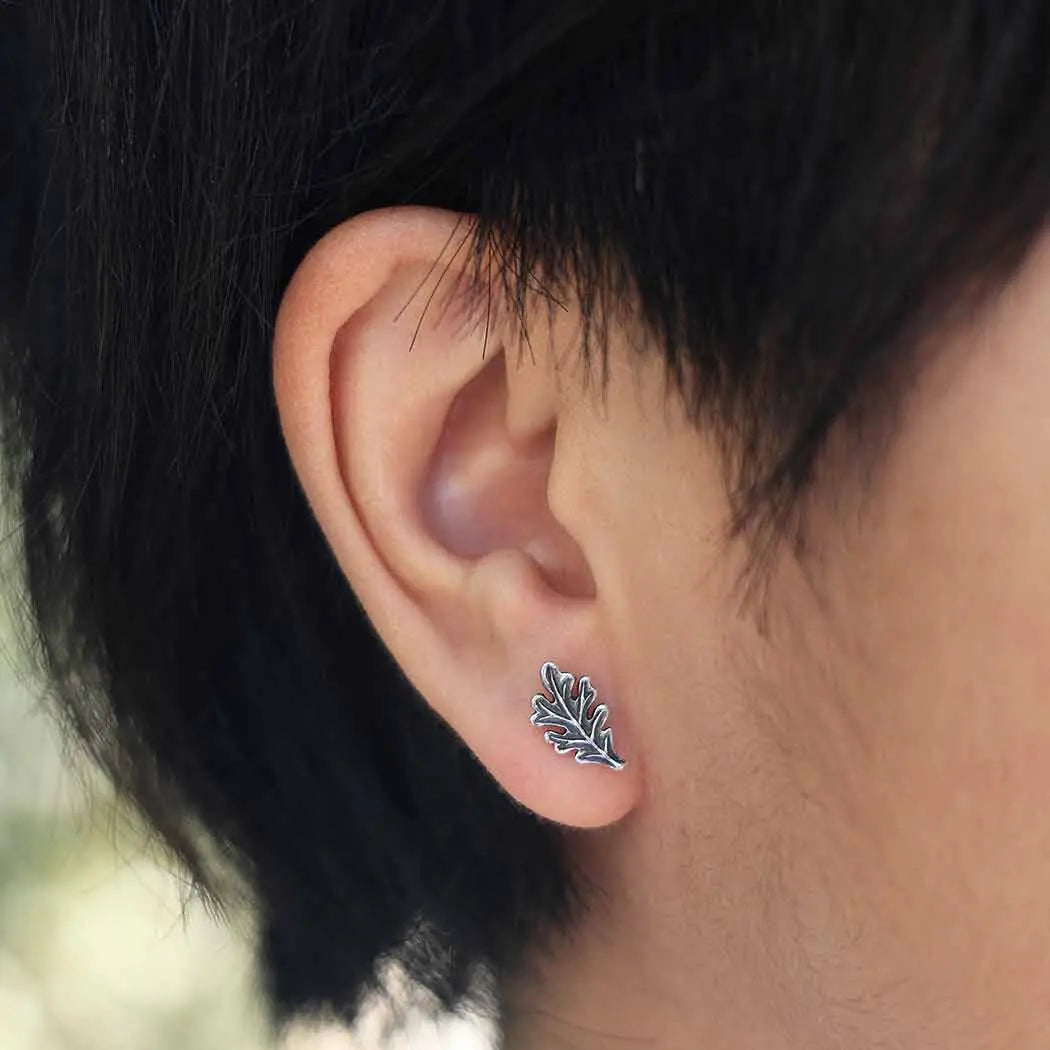Tarazed Gems & Jewellery
Oak Leaf Sterling Silver Stud Earrings
Oak Leaf Sterling Silver Stud Earrings
Couldn't load pickup availability
Oak Leaf Sterling Silver Stud Earrings
Origin: Thailand
Material: Sterling Silver (925)
Approximate Dimensions: 1.1cm x 0.6cm
Weight: <1g
10% of this purchase will be donated to The Biodiversity and Nature Conservation Association (BANCA)
The prehistoric Indo-European tribes worshiped the oak and connected it with a thunder or lightning god, and this tradition descended to many classical cultures.
In Greek mythology, the oak is the tree sacred to Zeus, king of the gods. In Zeus's oracle in Dodona, Epirus, the sacred oak was the centerpiece of the precinct, and the priests would divine the pronouncements of the god by interpreting the rustling of the oak's leaves. Mortals who destroyed such trees were said to be punished by the gods since the ancient Greeks believed beings called hamadryads inhabit them.
In Celtic polytheism, the name of the oak tree was part of the Proto-Celtic word for 'druid': *derwo-weyd- > *druwid-; however, Proto-Celtic *derwo- (and *dru-) can also be adjectives for 'strong' and 'firm', so Ranko Matasovic interprets that *druwid- may mean 'strong knowledge'. As in other Indo-European faiths, Taranis, being a thunder god, was associated with the oak tree. "Tree" and drus may also be cognate with "Druid," the Celtic priest to whom the oak was sacred. There has even been a study that shows that oaks are more likely to be struck by lightning than any other tree of the same height.
In Norse mythology, the oak was sacred to the thunder god, Thor.
In Baltic and Slavic mythology, the oak was the sacred tree of Latvian god Pērkons, Lithuanian Perkūnas, Prussian Perkūns and Slavic Perun, the god of thunder and one of the most important deities.
The oak also appears in the Hebrew tradition. In the Bible, the oak tree at Shechem is the site where Jacob buries the foreign gods of his people (Gen. 35:4).
Color may vary in images and videos due to different lightings and angles.
Share




